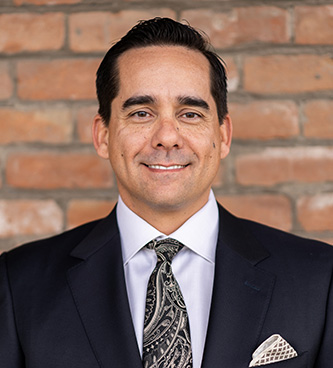Earlier this month, a jury in St. Louis, Missouri awarded former NFL running back Reggie Bush $12.5 million in personal injury damages against the Los Angeles Rams. Bush’s injury occurred on November 1, 2015 at the Ram’s former stadium in St. Louis while Bush was playing for the San Francisco 49ers. During the game, Bush was forced out of bounds, as he carried the ball toward the sideline. The immediate bench area just outside the field of play is covered with artificial turf. However, Bush’s momentum carried him past the bench area and onto a section of concrete that circled the entire stadium surface. Upon stepping on the concrete with his plastic cleats, Bush slipped and fell backward onto the concrete surface. As a result of the fall, Bush suffered a season-ending meniscus tear, which gave rise to his lawsuit. Additionally, Bush’s legal team argued that the injury cut his career short and cost him millions of dollars in future NFL earnings. There are several key takeaways from this lawsuit that apply to almost any slip-and-fall case.
The Value of a Personal Injury Case Depends on the Circumstances and the Types of Damages Involved.
In any personal injury case, your overall damages are determined by factors such as injury-related medical expenses, pain and suffering, lost wages, and loss of enjoyment of life. We must remind you that just because Reggie Bush was awarded $12.5 million for his slip-and-fall case does not mean that every case will warrant a similar outcome. In Bush’s case, he was an NFL running back who made a living off using his legs. An NFL player suffering a knee injury is likely much more impactful on his life and career than someone who works behind a desk 40 hours a week. Also, as an NFL player, Bush is paid millions of dollars per year. This fact greatly supported the overall compensation Bush received.
Do Not Let an Insurance Adjuster or Defense Counsel Blame You for Your Injuries!
In Bush’s lawsuit, the Rams’ legal team raised a number of arguments that are common defenses to slip-and-fall cases. First, they contended that they could not have reasonably known that the concrete was dangerous because only one similar incident had occurred over the 20 years prior. Second, they pointed to Bush’s history of knee injuries to argue that they contributed to the meniscus tear. Finally, in closing arguments, the Rams’ lawyer suggested that Bush should have been able to avoid the concrete.
All of these arguments failed. In slip-and-fall cases, it is the duty of the property owner, or in this case the Rams, to remedy unreasonably dangerous conditions of which they have knowledge. Clearly, in a stadium where 250+ pound men are running full speed for 4 quarters of football, one can reasonably anticipate that a player’s momentum could carry them to the concrete outer ring of the stadium’s surface. Considering the players are also wearing plastic cleats, the Rams knew or should have known that such conditions created a great risk for falls.
Slip-and-fall cases are intricate and difficult to prove, as they require intensive investigations to show that the property owners had notice of the dangerous condition and failed to remedy and/or warn the public of that condition. Nonetheless, you must not let an insurance adjuster or defense counsel bully you into believing that the property owner is not responsible for your injuries. A strong legal team well acquainted with the ins-and-outs of Arizona law can represent your personal injury rights if you suffer an injury due to a slip-and-fall. At Torgenson Law, those are precisely the services we provide.
At Torgenson Law, we have seasoned attorneys with experience representing clients in slip-and-fall cases, ready and willing to do everything it takes to help you receive the compensation you deserve. If you have been injured due to an act of negligence on someone else’s property, do not hesitate to call us at (602) 726-0747 to find out how we can help you with your personal injury claim.

John Torgenson is a highly experienced personal injury lawyer with over 20 years of practice in Arizona. He earned his Bachelor’s degree from the University of Utah and his Juris Doctor from Notre Dame. John has a proven track record of securing substantial verdicts and settlements, including an $8.25 million recovery for a gunshot injury victim. His expertise has earned him AVVO ratings and recognition as a Super Lawyer.
John is also a sought-after lecturer on personal injury law, sharing his extensive knowledge with peers and aspiring attorneys. Beyond his legal practice, John is an avid golfer and actively supports organizations like the Military Assistance Mission, Arizona School for the Arts, Page Balloon Regatta, University of Arizona Foundation, Junior Achievement of Arizona, and the Tim Huff Pro Bono Golf Classic.
Passionate about advocating for injury victims, John dedicates his career to battling insurance companies and corporate interests, ensuring that the rights of those who are hurt are vigorously defended.
